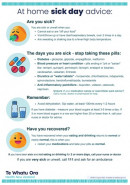Chlortalidone is a diuretic, which means it helps your body get rid of extra salt (sodium) and water. It works by increasing the amount of urine (pee) you make. Chlortalidone is used to treat high blood pressure (hypertension), and is also used to lessen extra fluid in the body (called oedema) caused by conditions such as heart failure, liver disease, or kidney disease. This can reduce symptoms such as swelling in your ankles or feet, or shortness of breath. In New Zealand, chlortalidone is available as tablets (25 mg).
Love our website? We do too. Did you know we're a charity? Donate now to help us keep it free for everyone in Aotearoa New Zealand.
Chlortalidone
Sounds like 'klor-THAL-i-done'
Key points about chlortalidone
- Chlortalidone is a diuretic, which means it helps your body get rid of extra salt (sodium) and water.
- Chlortalidone is also called Hygroton® or 'water' tablet or 'water pill'.
- Find out how to take it safely and possible side effects.

- High blood pressure: the usual dose is half to one tablet (12.5 mg to 25 mg) a day.
- Oedema (excess fluid): the usual dose is 25 mg once a day. Some people may need higher doses.
- Your doctor will advise you how long to take chlortalidone for.
- Always take your chlortalidone exactly as your doctor has told you. The pharmacy label on your medicine will tell you how much chlortalidone to take, how often to take it, and any special instructions.
- Take chlortalidone once a day, in the morning.
- It is best taken in the morning, so it works during the day and your sleep is not disturbed by you needing to get up to go to the toilet during the night.
- You can take chlortalidone with or without food.
- Missed dose: If you forget to take your dose, take it as soon as you remember. But, if it is late in the afternoon, skip the missed dose and continue as usual the next day. Do not take double the dose.
Here are some things to know when you're taking chlortalidone. Other things may be important as well, so ask your healthcare provider what you should know about.
- Alcohol: Limit or avoid drinking alcohol while you are taking chlortalidone. Alcohol may increase your chances of getting side effects such as dizziness.
- Other medicines: chlortalidone interacts with some medications, herbal supplements and rongoā Māori, so check with your doctor or pharmacist before starting chlortalidone and before starting any new products.
| Be careful when taking some pain relief medicines |
|---|
| Taking diuretics together with pain relief medicines called ‘non-steroidal anti-inflammatory drugs’ (NSAIDs), such as ibuprofen and diclofenac and medicines called ACE inhibitors or ARBs can be harmful to your kidneys. Read more about NSAIDs and blood pressure medicines. |
Examples of NSAIDs include:
- diclofenac (e.g. Voltaren Rapid)
- ibuprofen (e.g. Nurofen)
- naproxen (e.g. Naprogesic)
- celecoxib (Celebrex).
Taking NSAIDs together with diuretics and medicines called ACE inhibitors or ARBs can be harmful to your kidneys (this combination of medicines is called the triple whammy). If you are taking ACE inhibitors or ARBs and diuretics, tell your doctor or pharmacist before starting NSAIDs.
- Examples of ACE inhibitors are captopril, cilazapril, enalapril, lisinopril, perindopril and quinapril.
- Examples of ARBs are candesartan, irbesartan, valsartan and losartan.
Before buying NSAIDs for pain relief, check with your pharmacist whether these are safe for you.
Read more about NSAIDs, ACE inhibitors, ARBs and The triple whammy(external link) SafeRx
Like all medicines chlortalidone can cause side effects, although not everyone gets them. Often side effects improve as your body gets used to the new medicine.
| Side effects | What should I do? |
|---|---|
|
|
|
|
|
|
|
|
|
|
| Read more about medicines and side effects and reporting a reaction you think might be a side effect. | |
The following links have more information on chlortalidone.
Medsafe Consumer Information Sheets: Hygroton(external link)
New Zealand Formulary Patient Information: Chlortalidone(external link)
Resources
5 questions to ask about your medications(external link)(external link)(external link) Health Quality and Safety Commission, NZ, 2019 English(external link)(external link)(external link) Te reo Māori(external link)(external link)(external link)
References
- Chlortalidone(external link) New Zealand Formulary
Brochures

At home sick day advice
Health New Zealand | Te Whatu Ora, 2023

Medicines and side effects
Healthify He Puna Waiora, NZ, 2024

Health Quality and Safety Commission, NZ, 2019 English, te reo Māori
Credits: Sandra Ponen, Pharmacist, Healthify He Puna Waiora. Healthify is brought to you by Health Navigator Charitable Trust.
Reviewed by: Angela Lambie, Pharmacist, Auckland
Last reviewed:
Page last updated:





